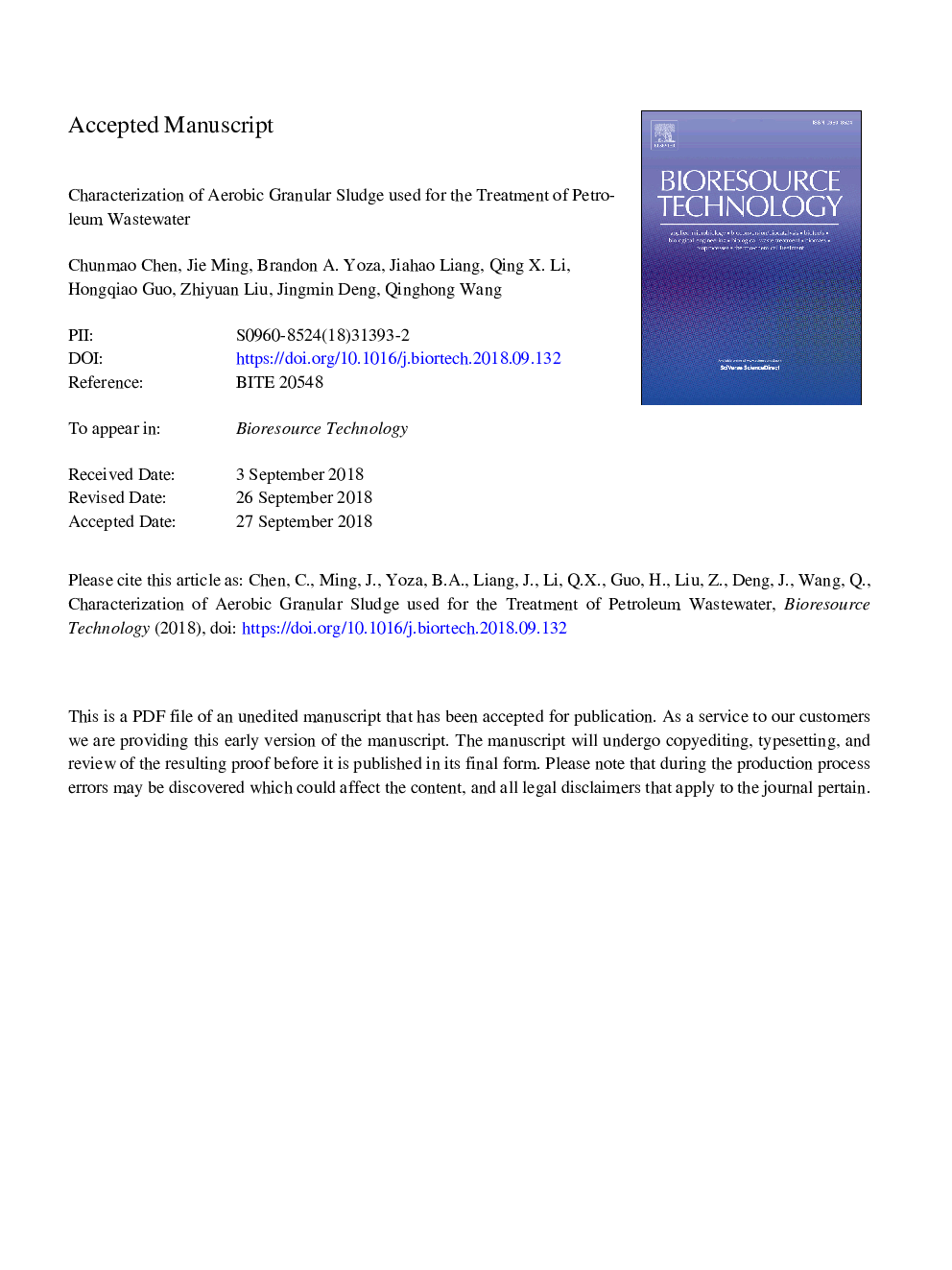| Article ID | Journal | Published Year | Pages | File Type |
|---|---|---|---|---|
| 11023671 | Bioresource Technology | 2019 | 28 Pages |
Abstract
The application of aerobic granular sludge (AGS) is a promising biological method for wastewater treatment. In the present study, the AGS method was used for the treatment of petroleum wastewater. The granulation process and organic/nitrogen compound removal efficiencies were determined and correlated with the microbiological communities. Granulation of the aerobic sludge occurred after 35â¯days of operation. The compacted granules had a diameter of 0.46-0.9â¯mm. Extracellular polymeric substances (EPS) contents increased as granulation progressed and reached 128â¯mg/g·VSS. The granulated sludge efficiently reduced COD by 95% and petroleum compound contents by 90%. NH4+-N and TN removal were inefficient due to the inhibition of nitrobacteria and denitrificans, but were significantly improved by the addition of glucose. The microorganisms in the granules capable of degrading petroleum chemicals consisted of the genera Propioniciclava, Micropruina, Alphaproteobacteria, Flavobacterium, and Sulfuritalea.
Keywords
Related Topics
Physical Sciences and Engineering
Chemical Engineering
Process Chemistry and Technology
Authors
Chunmao Chen, Jie Ming, Brandon A. Yoza, Jiahao Liang, Qing X. Li, Hongqiao Guo, Zhiyuan Liu, Jingmin Deng, Qinghong Wang,
